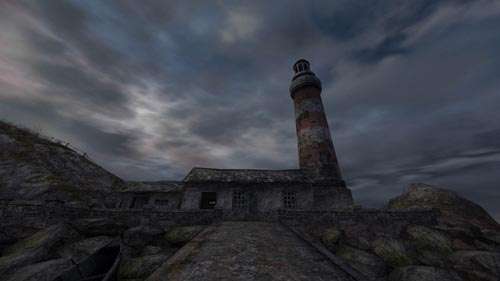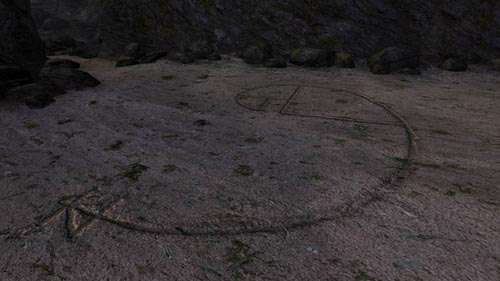- Qualcomm Launches Snapdragon 4 Gen 2 Mobile Platform
- AMD Launches Ryzen PRO 7000 Series Mobile & Desktop Platform
- Intel Launches Sleek Single-Slot Arc Pro A60 Workstation Graphics Card
- NVIDIA Announces Latest Ada Lovelace Additions: GeForce RTX 4060 Ti & RTX 4060
- Maxon Redshift With AMD Radeon GPU Rendering Support Now Available
Dear Esther Review: When a Game is not a Game

There are certain expectations when loading up a game for the first time. Unspoken rules govern the experience that should be presented to the player. Dear Esther breaks all those rules yet pulls off something very unique. Read on as we delve into the latest Indie funded ‘experience’.
What is a game? A rather innocent question, but ask 20 different people and you will probably get 20 different answers. Social or physical interaction, entertainment, an assault on the senses to stimulate a reaction, or just fulfilling a sense of enjoyment.
When it comes to PC and Console games, we expect a certain amount of player driven interaction; we want to be in control, to bend the environment to our will. Be it through high scores or just blowing up anything and everything that bounces across our screens.
Dear Esther is very different. In fact, it would be very hard to define it as a game at all. You may look, you may move, but you may never touch. You are both the observer and protagonist; a memory in a world that is both a museum and a prison of the mind. A narrative whispers in your ears as you explore, metaphors and symbolism fill the senses as you meander through an empty but strangely exotic island.
The puzzle is not of a material nature but unraveling the torments that plague the mind after trauma. Why was this done? What did I do? Why did I do it? The environment becomes a twisted extension of the minds eye, trying to piece together what it can not grasp – a dream muddied with memories.
All is bleak, a light in the distance calls to you. A beach, cliffs, meadows, a lodge. Paint cans and candles, the littering of chemical formulae and electronic schematics, torn newspapers and a bloodied medical kit. Who was here? No – Why am I here? These were the questions filling my mind.
Texturally magnificent, it is hard to deny the effort that went into the visual and auditory styling, despite working with a now aging Source Engine. I found myself staring into the the ocean to absorb the atmosphere. It looks bleak, but hides a treasure trove of visual stimuli. The decent into the caves leaves one astounded, truly lost for words at its beauty.
An interactive landscape to become lost in, but ultimately tied to a single path. There is only one conclusion, one story, but the narrative tells it slightly differently each time. Dear Esther is neither a game nor a movie; no – Dear Esther is a piece of art.
Art can not be rushed into either; the desire to run through open meadows, rending asunder all manor of hallow and deathly creatures in an adrenaline fueled world will not sit well with Dear Esther. It must be enjoyed when the mood takes you to explore and preferably undisturbed. Let the world consume you, let your eyes dance around the screen and be absorbed by the world in front. This is what art does.
Some may call Dear Esther expensive for what is a single play-through of one and a half hours, but at $10, it’s less or the same as a new movie. Indie funded and produced, it was profitable within 6 hours of release and with over 50k copies sold within a week. An impressive title for what started life as a mod.
This is not the release for something action-packed, but more for something to contemplate over in the evening. This was something new and interesting, and I’m glad I
paid for it. Looking forward to further releases from this developer. Easily an Editors Choice.

Dear Esther
Discuss this article in our forums!
Have a comment you wish to make on this article? Recommendations? Criticism? Feel free to head over to our related thread and put your words to our virtual paper! There is no requirement to register in order to respond to these threads, but it sure doesn’t hurt!
Support our efforts! With ad revenue at an all-time low for written websites, we're relying more than ever on reader support to help us continue putting so much effort into this type of content. You can support us by becoming a Patron, or by using our Amazon shopping affiliate links listed through our articles. Thanks for your support!









